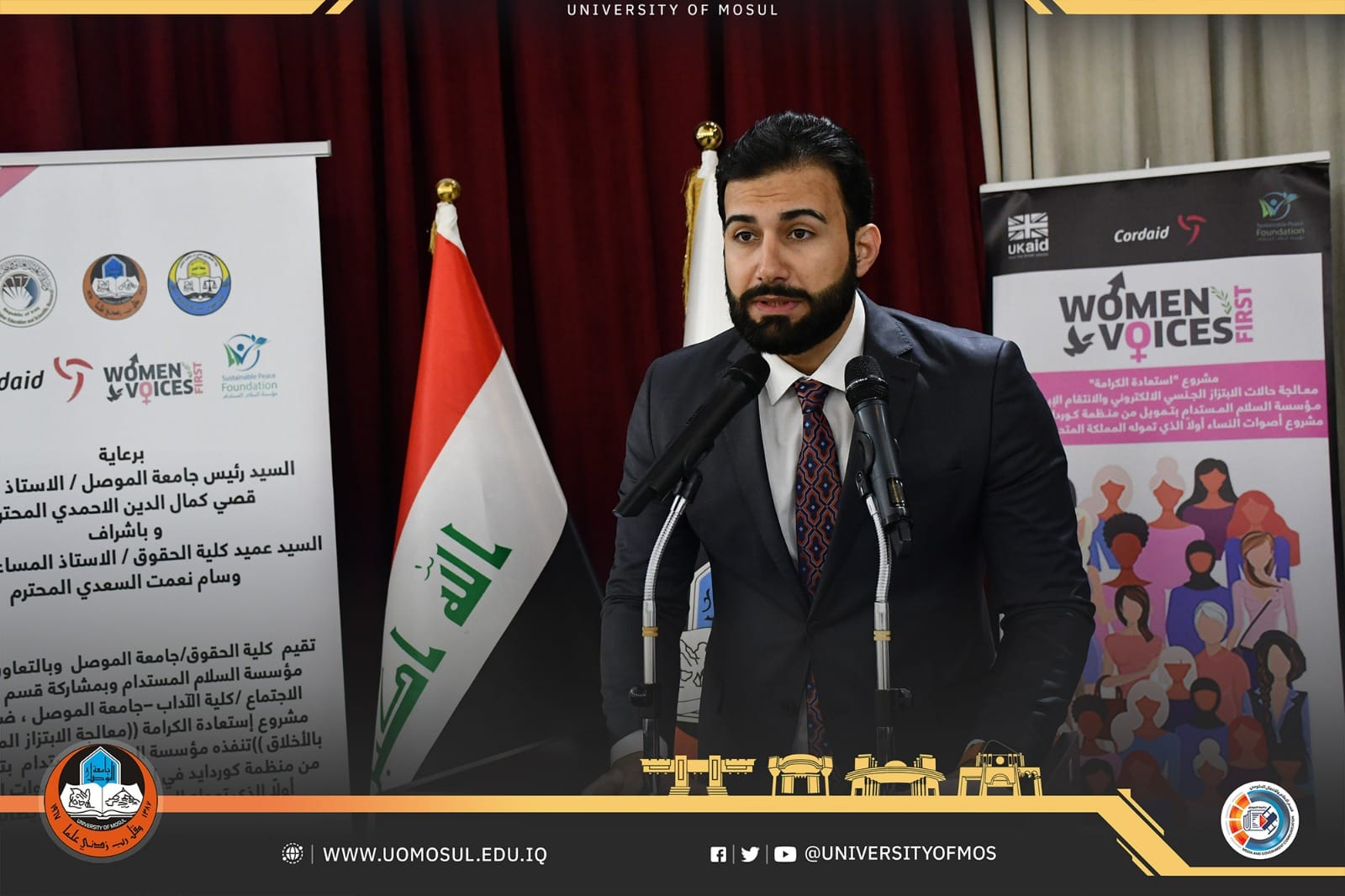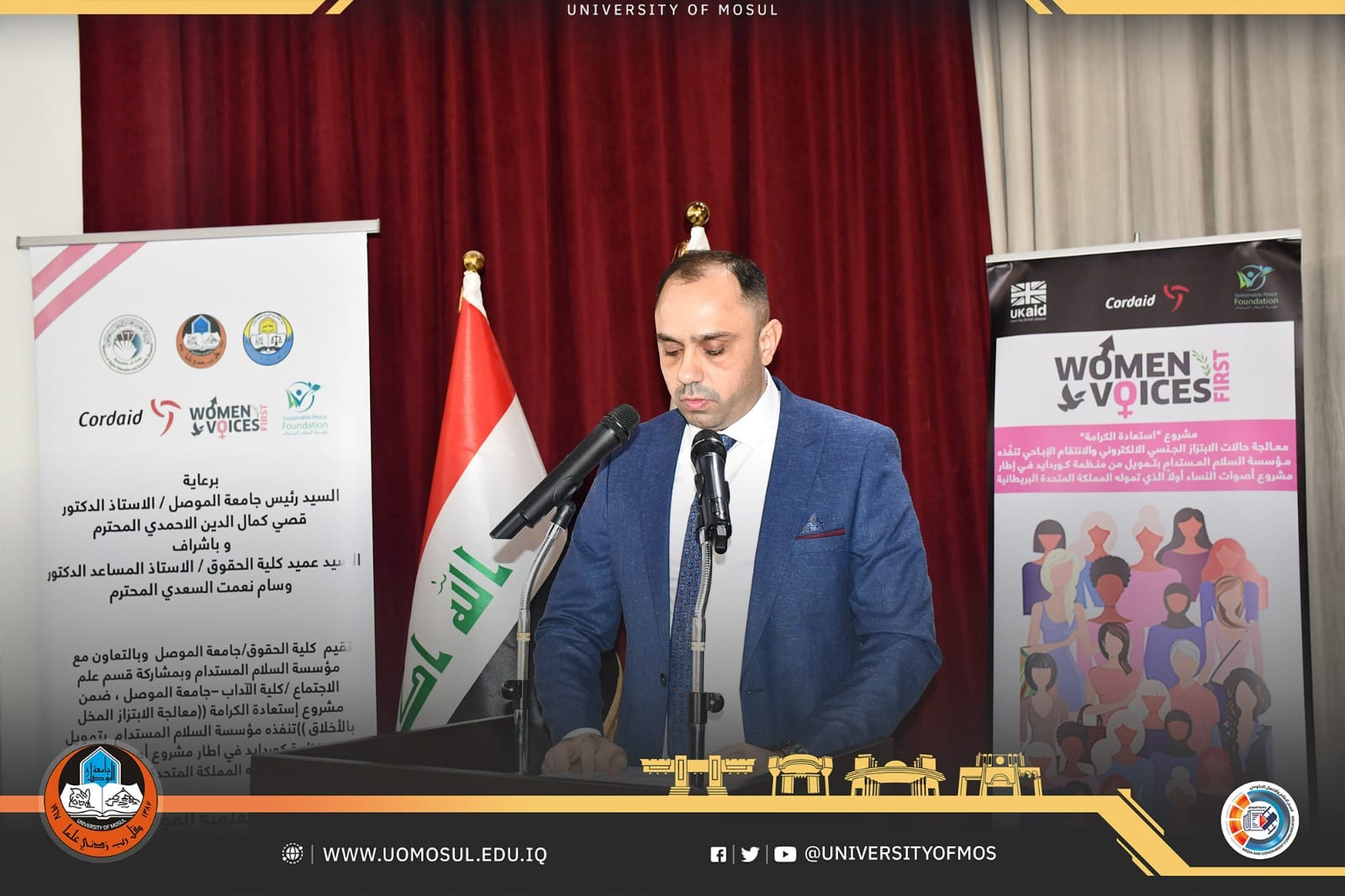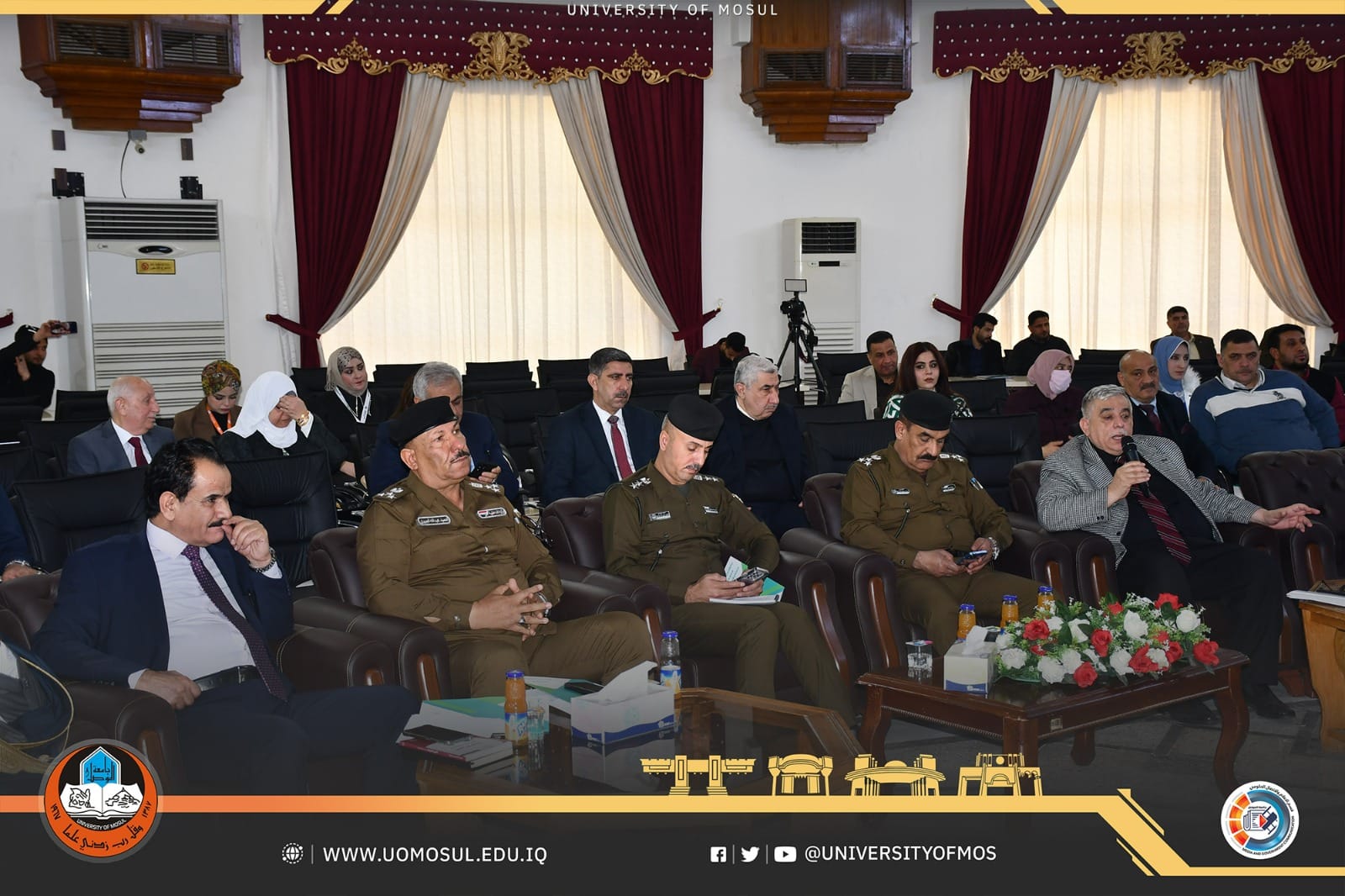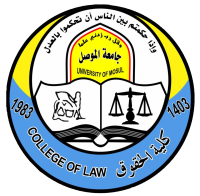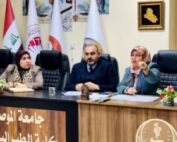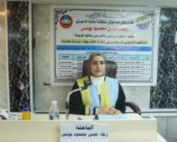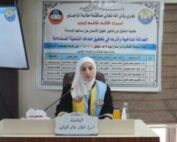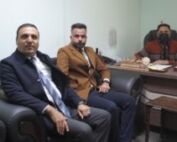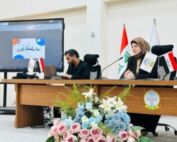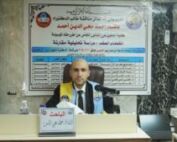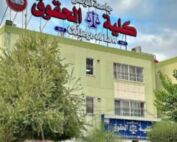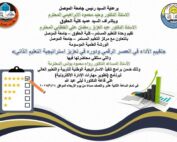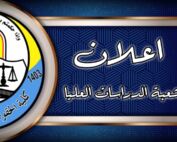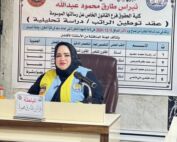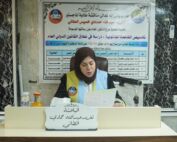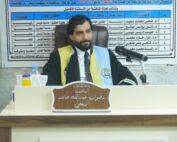22 February، 2024
Scientific symposium on immoral electronic blackmail

Under the patronage of Professor Dr. Qusay Kamal Al-Din Al-Ahmadi, President of the University of Mosul, and in the presence of Professor Dr. Munir Salem Taha, Assistant President of the University of Mosul for Scientific Affairs, Professor Dr. Wahid Mahmoud Al-Ibrahimi, Assistant President of the University of Mosul for Administrative Affairs, and a number of members of the University of Mosul Council, in addition to security, scientific and academic figures, researchers, legal experts, tribal sheikhs, and representatives of organizations. Civil society and students, and in cooperation with the Sustainable Peace Foundation, our college held on Tuesday, February 20, 2024, the scientific symposium entitled electronic blackmail that is immoral, which began with a speech by Assistant Professor Dr. Wissam Nemat Ibrahim Al-Saadi, Dean of the College of Law, in which he welcomed the honorable attendance, appreciating the role of the University of Mosul in addressing the phenomena that are disruptive to society. And the safety of its members, pointing to the role of the College of Law and its members in providing solutions and legal studies that contribute to maintaining societal stability. He touched on the phenomenon of electronic blackmail, indicating its causes and pillars and how to deal with it, appreciating the role of the Al Salam Foundation in its cooperation with our college to establish this activity. Then, Dr. Neinab Lamassu, Executive Director of the Foundation, delivered a speech. Sustainable Peace, his speech in which he praised the role of the University of Mosul, the College of Law, state departments and institutions, and civil society organizations in holding this symposium and participating in it, touching on the stages of establishing the Sustainable Peace Foundation and its role in building peace, in addition to its provision of solutions and treatments related to the phenomenon of electronic blackmail, pointing to the necessity of concerted governmental, official and societal efforts. Aiming to reduce this phenomenon, then Brigadier General Abdullah Hussein Muhammad, Director of the Community Police in Nineveh Governorate, gave his speech in which he explained the role of the community police in working to combat the phenomenon of extortion, indicating its causes and effects and the steps that must be followed to deal with the blackmailed person, indicating the necessity of informing the official authorities by whoever is exposed. Then Mr. Sarmad Mubarak, senior program manager for the CorDade organization in the Middle East, gave a speech in which he explained the seriousness of electronic blackmail due to the multiplicity of its causes and the diversity of its renewable, innovative and changing methods, stressing the collective responsibility to confront this phenomenon with effective measures. Then the representative of the security apparatus gave a speech. The National Bank delivered his speech in which he appreciated the efforts of our university, our college, and the Sustainable Peace Foundation in holding this symposium, touching on the causes of electronic blackmail, its types, and mechanisms for preventing it, while presenting statistics on the number of complaints submitted by those exposed to electronic blackmail, indicating the stages and mechanisms for legal dealing with this phenomenon. Then the scientific sessions began that dealt with The topics of the symposium were (criminal law, private law, the psychological/social aspect, and the legal clinic), where the first session was chaired by Professor Dr. Khalaf Ramadan Muhammad and Assistant Professor Dr. Ziad Abdel Wahab Abdullah as rapporteur, which witnessed the presentation of a number of research papers that dealt with the criminal confrontation of electronic sexual blackmail and the impact of immoral blackmail on issues Personal status and civil liability resulting from the crime of immoral blackmail. Then the second session began under the chairmanship of Professor Dr. Raqeeb Muhammad Jassim and Assistant Professor Dr. Muhammad Nazem Daoud as rapporteur, which witnessed the presentation of a number of research papers that dealt with the psychological effects of electronic sexual blackmail and electronic sexual blackmail, its causes and effects – a study Analytical social studies, the right to digital security, the phenomenon of electronic blackmail, and the role of the legal clinic in raising awareness about electronic sexual blackmail. Then the attendees, including researchers, academics, teachers, those interested in legal affairs, and representatives of civil society organizations, asked many questions and inquiries about the topic of the symposium, which were answered in detail by those in charge of it, and then it was read. The recommendations emphasized the importance of the Iraqi legislator adopting electronic blackmail as an independent crime punishable by law, specifying its conditions and elements, with the necessity of compensating the injured party in accordance with the provisions of the Civil Code. Also, the necessity of establishing a governmental oversight mechanism that contributes to reducing this crime, as well as the importance of community and family awareness of the importance of the proper use of social media. And electronic technologies and programs. Then, Professor Dr. Khalaf Ramadan Muhammad, Assistant Dean for Administrative and Financial Affairs at the College of Law, gave a speech in which he expressed his deep thanks and great appreciation to everyone who contributed to the success of this symposium, represented by the Deanship of the College of Law, the Sustainable Peace Foundation, the Preparatory Committee, the Reception Committee, and the generous attendance. The symposium also witnessed Distributing certificates of appreciation to the researchers and the heads of the preparatory and reception committees, in addition to our college team that was nominated for the final participation in the commercial arbitration competition. This symposium comes within the series of scientific, research and cultural activities of our college during the current academic year 2023-2024.
